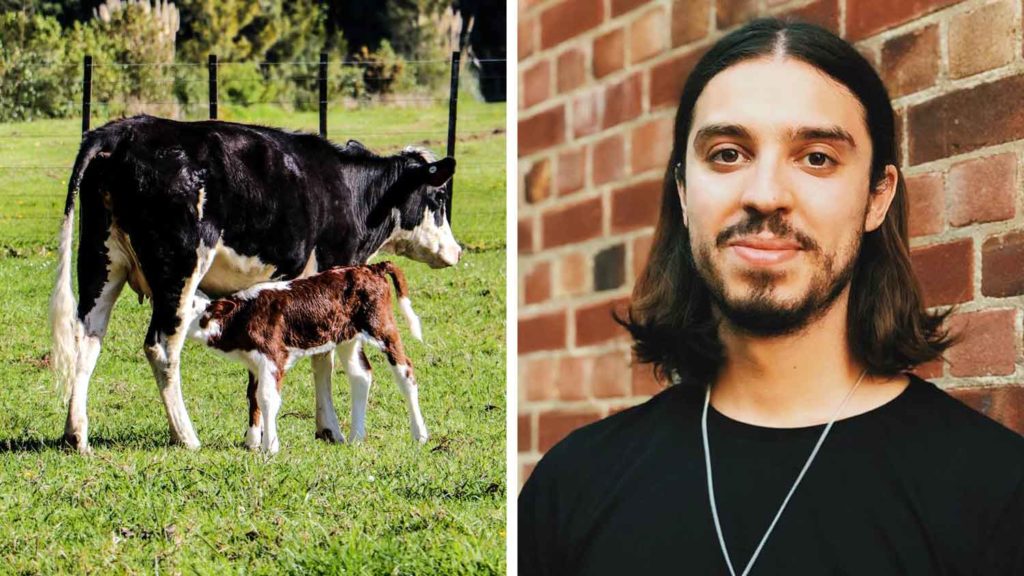British animal rights activist Ed Winters — known as Earthling Ed — is a vegan educator and public speaker. He tours the world convincing people to ditch meat, dairy, and eggs, predominantly for the sake of animal welfare.
Through his online content, in 12 months he has convinced more than 30,000 people to give plant-based foods a try. Could you convince him his view is wrong?
That’s what students at an Ivy League research university recently attempted to do.
Winters visited Cornell University in Upstate New York, specifically targetting its Dairy Center of Excellence, which exists to connect students “with expertise in the dairy industry,” according to the Cornell website.
Winters posted an image of himself to Instagram sitting behind a desk with a banner that reads “cow’s milk is for baby cows, change my mind.” He captioned the post, “[Cornell Dairy Center of Excellence is] a university on-site dairy farm, where students learn about how to exploit animals.”
Farmers forcibly impregnate dairy cows so that they can produce milk. They then take their babies away, which, Winters believes, causes cows immense pain and suffering. When they are no longer financially beneficial, they are slaughtered for their meat.
Winters filmed his conversations with students at the university for a YouTube video. In the 20 minute clip, he talks about the environmental impact of dairy consumption, as well as the ethical.
“Buying cow’s milk may seem trivial, but there is an effect that’s bigger than we can potentially comprehend from what is tangible in front of us, and the environmental degradation is one aspect of that,” he told one student, who believed that the term “catastrophic” was an inappropriate description of the impact of animal agriculture on the environment.
Winters explained that the term had been used by the United Nations, as well as in an Oxford University study, to describe the environmental impact of the meat and dairy industries.
Producing a ‘Profitable Product’
Winters also spoke to one student who grew up on a farm. She explained how well the animals were looked after, adding that they were provided with food, water, and fresh bedding.
Winters maintains that these are “necessities” which allow farmers to “produce a profitable product.”
He explained, “for me, I perceive it as being like a way of rationalizing in our conscience the things that we do. We take the babies away from the mothers but we rationalize that by saying, ‘well we can give the baby all the care that they need.‘”
He continued, “but with that process of separation, it is an objectively cruel process because they are matriarchal animals and they do want to nurture their young … there is a disingenuous feeling that ‘i’m doing the right thing’ but actually you’re only doing the right thing to make money, to provide a product. It’s not the right thing for the animals.”
He asked the student about her sick pet corgi, who would eventually be euthanized. The student saw comparisons between this process and the slaughtering of dairy cows that are no longer able to produce milk. But Winters said, “it’s not euthanasia in farms, you’re selling them for money. These animals could still live their lives, it’s just they can no longer make money for the farmer.”
He added, “the question then becomes, ‘can you compassionately take the life of someone who doesn’t need to die?'”


